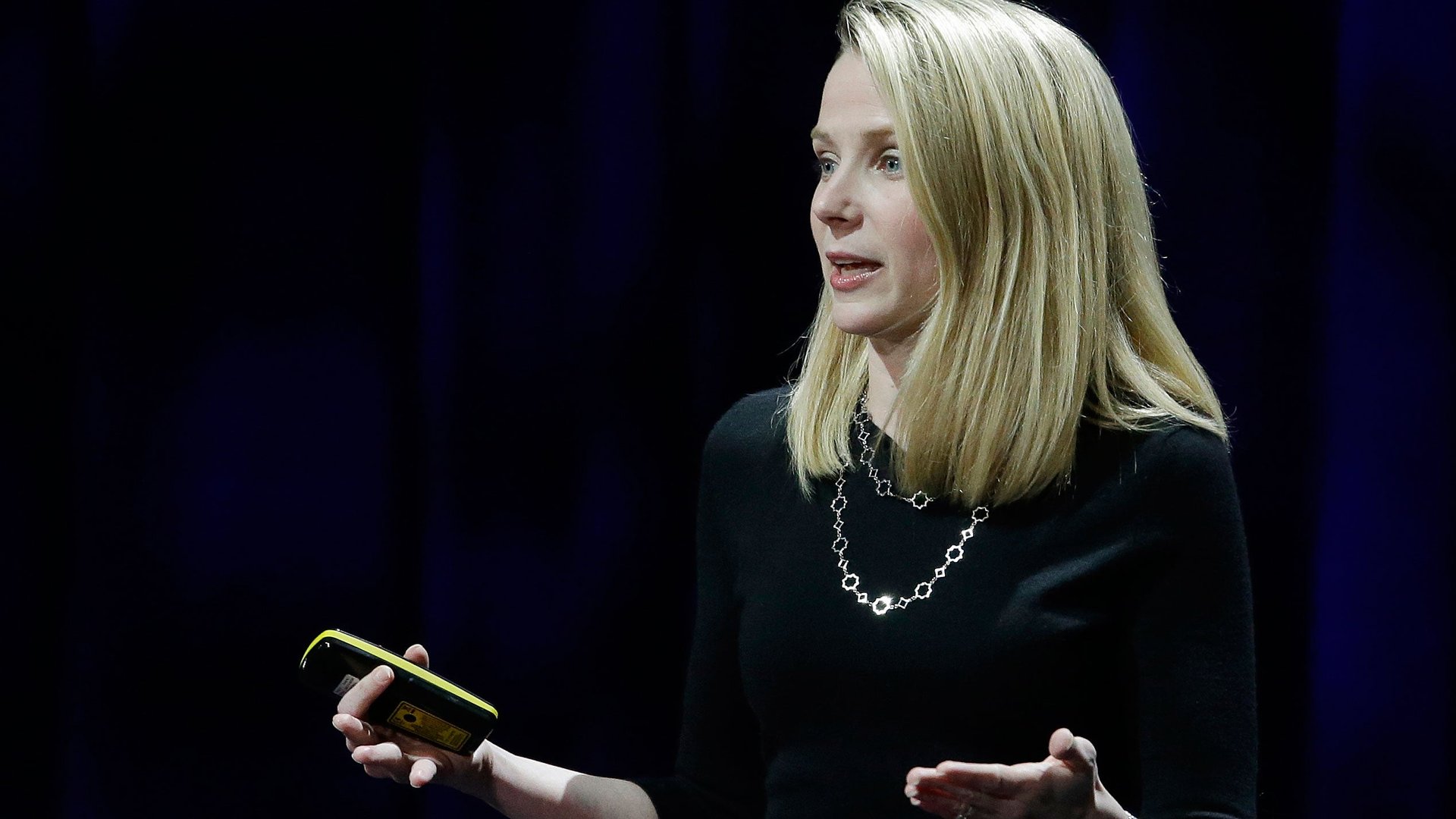Yahoo’s plan A, B, C, D, and E for appeasing frustrated investors
Spinoff? Reverse spinoff? Something else altogether?


Spinoff? Reverse spinoff? Something else altogether?
The never-ending Yahoo saga keeps dragging out. According to a Jan. 8 report from Bloomberg, Yahoo is now exploring an outright sale of its web business—the latest in a series of attempts to appease investors frustrated with the company’s lagging performance.
Shareholders have grown impatient for a long overdue turnaround, a duty Yahoo’s board entrusted Marissa Mayer with accomplishing when she took over as CEO in 2012. Under her leadership, Yahoo has debuted new products, snapped up high-profile startups, and updated its logo. But despite all the buzz, some investors feel those changes added no value to the company, while the stock slid 34% in 2015.
To placate them, Mayer had proposed spinning off Yahoo’s 15% stake in Alibaba and returning the value to shareholders. Things, however, didn’t go according to plan. Now Yahoo finds itself at the junction of plans B, C, D, and E, and it’s anybody’s guess what will happen next.
Plan A: Spin off Alibaba
Mayer’s original plan involved restructuring Yahoo to create a new listed entity called Aabaco that would own 384 million shares of Alibaba. Theoretically, this would transfer the stake to shareholders on a tax-free basis. While the company was confident the deal would not incur any taxes, investors were less convinced, especially when the US Internal Revenue Service declined to rule on the matter ahead of the transaction. Despite this, Mayer said in October that the company was aiming to complete the spinoff in the fourth quarter, though she warned it could be delayed to January due to holiday market closures. Ultimately, the company gave into investor pressure and decided it wouldn’t risk a multibillion-dollar tax bill.
Plan B: Do a reverse spinoff
In December, after a series of board meetings, the company decided it would undertake a complicated reverse spinoff, a proposal pushed by activist investor Starboard Value. This is the plan that it’s currently committed to, and it involves holding onto its Alibaba shares while spinning off everything else, namely its core business and stake in Yahoo Japan. The company warned that the process could take “a year or more to conclude,” which could stoke already heightened investor anxiety.
Plan C: Reorganize the company
Around the time Starboard proposed selling Yahoo’s core business, Recode reported that the Sunnyvale, California, company had tapped consultancy McKinsey to determine which units to invest in, close, and sell. In December, Yahoo closed its Dubai office and shuttered its video hub, Yahoo Screen. Though this could be unrelated, the message was clear in any case. Mayer was heavily banking on a subset of fast-growing businesses—mobile, video, native, and social—as part of her turnaround, but the company ultimately couldn’t figure out a way to make money off its video endeavors.
Plan D: Sack Mayer and cut costs
A week after Yahoo decided on a reverse spinoff, activist investor Eric Jackson, managing director of SpringOwl Asset Management, offered a detailed, 99-slide turnaround plan that involves bringing in a new CEO, laying off 75% of the staff, cutting back on lavish perks, and selling Yahoo’s Sunnyvale campus. Jackson argued that Starboard was incentivized to see a quick sale because it acquired half its Yahoo stake when the stock was trading low. Though SpringOwl is a minority shareholder, Jackson has said the firm was willing to wage a proxy fight, and it appears Yahoo is paying attention to his demands. Recent reports suggest Yahoo is planning to lay off 10% of its staff and is shopping for a buyer for a 48.6-acre site in Santa Clara.
Plan E: Go for an outright sale
Exploring a sale means just that, but investors seemed buoyed by the possibility, sending shares up 1.6% on Jan. 8 as the broader US market fell. There aren’t any indications that Yahoo has entertained any talks with potential buyers. A Yahoo representative declined to comment on Bloomberg’s report, and instead directed Quartz to a December statement from Yahoo chairman Maynard Webb noting the board remains dedicated to a turnaround and “has made no determination that the company is for sale.”